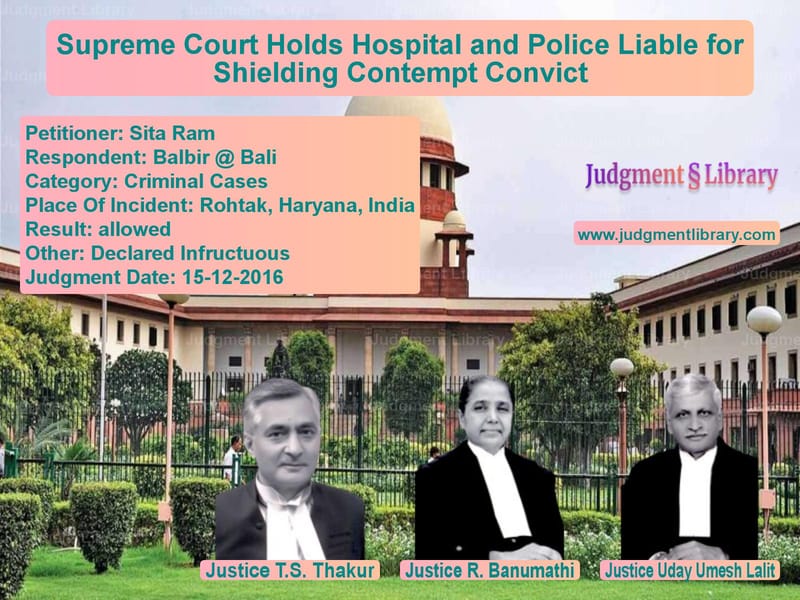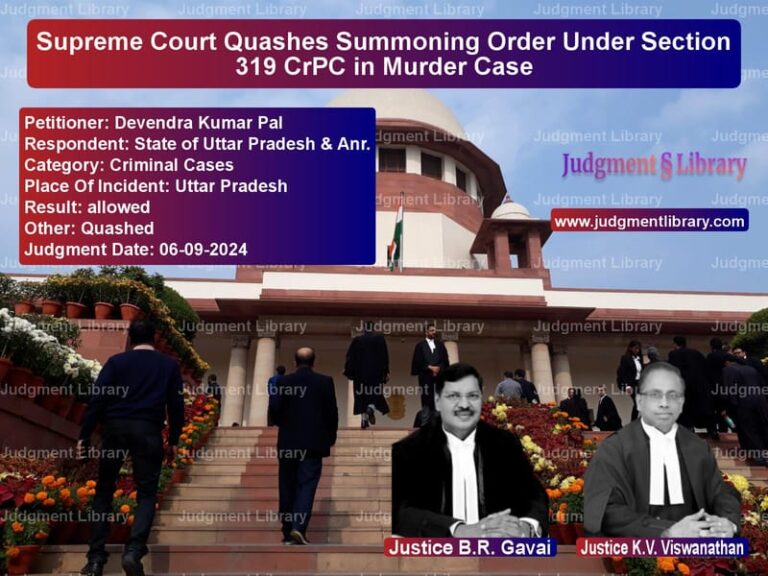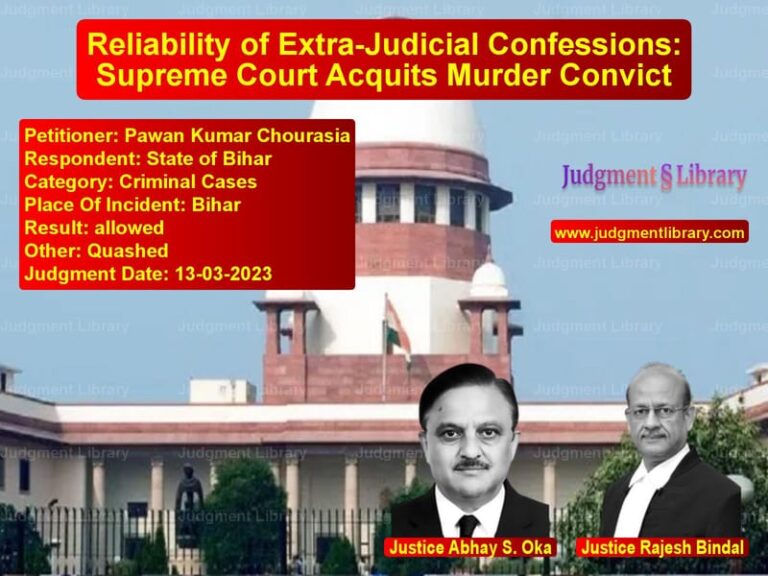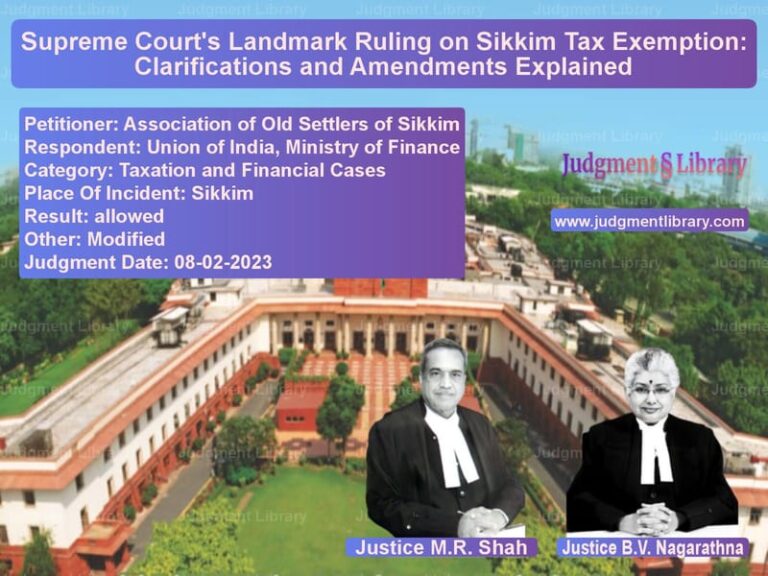Supreme Court Holds Hospital and Police Liable for Shielding Contempt Convict
The case of Sita Ram vs. Balbir @ Bali revolved around a serious issue of deliberate disobedience of the Supreme Court’s order, resulting in a contempt petition against the respondent and hospital authorities. The Supreme Court, in its landmark ruling, held both the accused and medical professionals guilty of obstructing the administration of justice.
Background of the Case
The case originated from a criminal appeal concerning an attack that led to multiple injuries and the death of an individual. The respondent, Balbir @ Bali, was a prime accused in the case and was granted bail by the Punjab and Haryana High Court. However, upon appeal, the Supreme Court canceled his bail and directed him to surrender immediately.
Despite this clear order, the respondent failed to surrender and remained at large. The police issued non-bailable warrants (NBWs) multiple times, but each time they were returned unexecuted. Eventually, it was discovered that the respondent was admitted to a hospital for an extended period under questionable circumstances. The prosecution alleged that the hospital provided a safe haven for the accused, preventing his arrest.
Legal Issues in the Case
- Whether the respondent willfully disobeyed the Supreme Court’s order by failing to surrender.
- Whether the hospital management and medical professionals aided the respondent in evading arrest.
- The role of the police in failing to execute NBWs despite repeated opportunities.
Arguments by the Petitioner
- The petitioner argued that the respondent, despite clear orders from the Supreme Court, did not surrender and continued to remain in hiding with the support of influential persons.
- The hospital in which the respondent was admitted provided medical asylum without justifiable reasons.
- The police were negligent in executing arrest warrants, allowing the accused to remain at large.
Arguments by the Respondent
- The respondent claimed he was suffering from severe medical conditions and was admitted to a hospital for necessary treatment.
- The hospital argued that they were not aware of any pending legal action against the respondent and admitted him based on medical grounds.
- The police contended that they made reasonable efforts but could not arrest the respondent due to his hospitalization.
Supreme Court’s Judgment
The Supreme Court, after reviewing the case, held the respondent, the hospital authorities, and the police responsible for obstructing justice. The key findings of the Court were:
- The respondent deliberately avoided surrendering to the authorities and used his influence to stay out of custody.
- The hospital played a direct role in shielding the respondent by allowing him to remain admitted for an unreasonably long duration without medical justification.
- The police displayed gross negligence in failing to arrest the respondent despite multiple NBWs.
- The hospital’s medical professionals knowingly extended protection to the accused and obstructed the administration of justice.
The Court observed:
“The hospital provided medical asylum to the respondent without justifiable medical reasons. The long hospitalization period, the failure to conduct necessary tests, and the hospital’s refusal to discharge the respondent despite clear instructions indicate a deliberate attempt to obstruct justice.”
Impact of the Judgment
This ruling has significant legal implications:
- It establishes accountability for medical institutions that knowingly protect accused persons.
- It strengthens legal measures against contempt of court by reinforcing the importance of compliance with judicial orders.
- It highlights the role of law enforcement agencies in ensuring the execution of court orders without undue delays.
Conclusion
The Supreme Court’s ruling serves as a stern warning against attempts to subvert the judicial process. By holding the respondent, medical professionals, and police accountable, the judgment reaffirms the principle that court orders must be obeyed and justice cannot be delayed through influence or manipulation.
Don’t miss out on the full details! Download the complete judgment in PDF format below and gain valuable insights instantly!
Download Judgment: Sita Ram vs Balbir @ Bali Supreme Court of India Judgment Dated 15-12-2016.pdf
Direct Downlaod Judgment: Direct downlaod this Judgment
See all petitions in Contempt Of Court cases
See all petitions in Judgment by T.S. Thakur
See all petitions in Judgment by R. Banumathi
See all petitions in Judgment by Uday Umesh Lalit
See all petitions in allowed
See all petitions in Declared Infructuous
See all petitions in supreme court of India judgments December 2016
See all petitions in 2016 judgments
See all posts in Criminal Cases Category
See all allowed petitions in Criminal Cases Category
See all Dismissed petitions in Criminal Cases Category
See all partially allowed petitions in Criminal Cases Category







